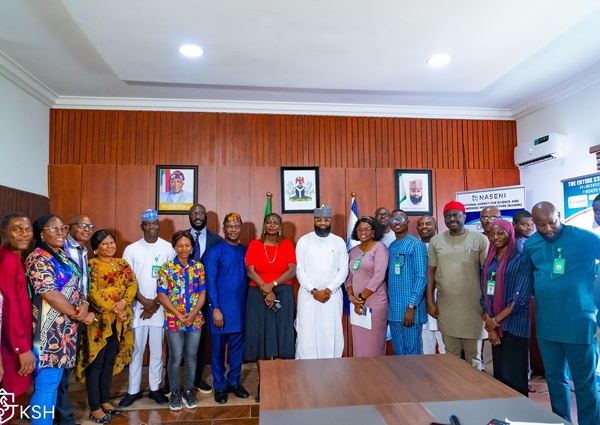
The National Agency for Science and Engineering Infrastructure (NASENI) has committed to positioning Nigeria as Africa’s hub for technological innovation, following the 3Cs principle of creation, collaboration and commercialisation.
During a press briefing marking one year of Khalil Halilu’s tenure as the executive vice chairman (EVC) of NASENI, the agency highlighted several milestones that have laid the foundation for Nigeria’s industrialisation and transformation into a technological powerhouse. According to Halilu, NASENI currently has over 35 market-ready products that are set for commercialisation. These products are designed to drive economic growth, promote technological advancement, and support sustainable job creation in line with President Bola Tinubu’s eight-point agenda.
Some of the key innovations developed by NASENI include a solar irrigation system, electric vehicles, hatchboxes, electric tricycles, solar street lamps, smart phones, laptops, power-efficient stoves, solar pumps, smart meters, lithium batteries, solar panels and CCTV systems. These products have the potential to reduce Nigeria’s reliance on imported goods and enhance local production.
Halilu emphasised the importance of renewable energy in driving Nigeria’s technological progress, stating that these innovations are aligned with the country’s goal of reducing fossil fuel dependency, promoting environmental sustainability, and fostering economic growth through innovative energy solutions.
He further revealed that NASENI has forged strong partnerships with both local and international organisations, laying the groundwork for Nigeria’s industrial revolution. The agency’s total investments are valued at $3.25 billion, with collaborations spanning both private and public sectors. Halilu reaffirmed NASENI’s commitment to working with indigenous and global institutions to accelerate the production and commercialisation of their technological innovations.
Among the standout products, NASENI’s Hatchbox is designed to promote science, technology, engineering and mathematics (STEM) education by inspiring young innovators and nurturing future scientists and engineers. The agency’s solar irrigation technology, another key product, aims to maximise farming efficiency by leveraging solar photovoltaic panels to generate power for water pumps, ensuring a sustainable livelihood for farmers.
NASENI’s primary focus remains on bridging the gap between research and industry, ensuring that research outputs are transformed into commercially viable products and services. The agency’s reforms include the launch of a strategic plan for 2023-2027, restructuring of its governance system, improvements to staff welfare and increased investment in training and skill development.
In its industrialisation efforts, NASENI is also spearheading the establishment of a tractor assembly plant in Nigeria and developing off-grid solar lamp systems as part of the “Irrigate Nigeria” project.
Halilu pledged continued dedication to adding value to Nigeria’s natural resources and encouraged Nigerians to embrace locally-made products. He further stated that NASENI’s collaboration with academic institutions would strengthen skills acquisition and support the next generation of innovators.
Director of technology business development at NASENI, Engr. Bernard Ozigi added that while the agency currently boasts over 200 products, more than 52 are now ready for the market. He highlighted NASENI’s government-to-government supply initiatives and ongoing partnerships with private-sector manufacturers to scale production and bring these products to a wider market.

